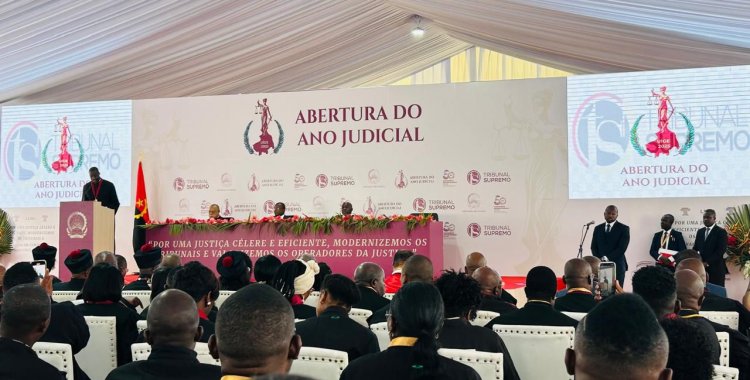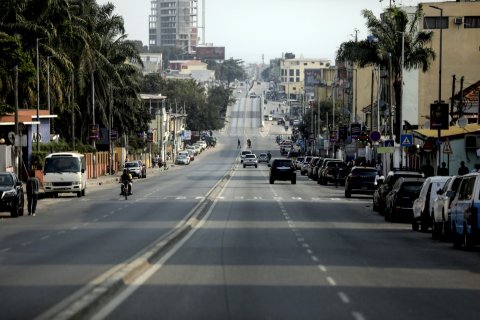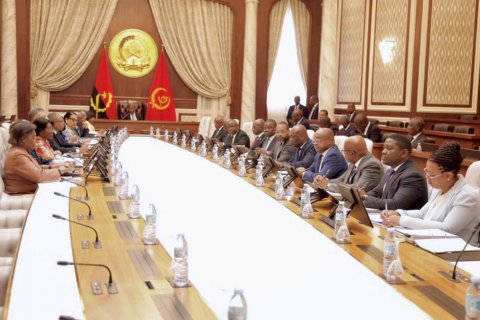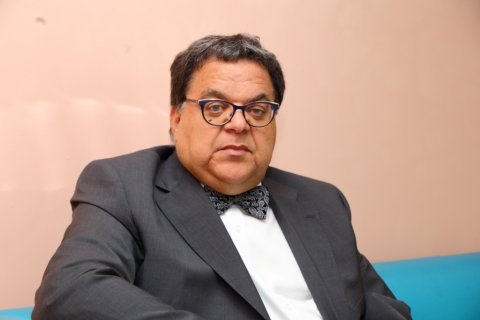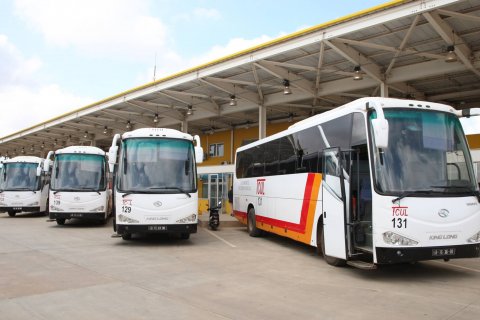On that occasion, the minister called for "impartiality and credibility" in the judicial system: "A judicial system that serves our society cannot fail to preserve its impartiality and credibility, because the creation of an attractive business environment for those who wish to invest in our economy and generate jobs in our country also depends on them", he stated.
The minister said that Angola needs a judicial power that is "increasingly independent", adding that there is no significant disagreement that the country wants and needs a judicial power that is increasingly independent, accessible to citizens and capable of making "increasingly fair and swift decisions".
In this sense, quoted by Angop, the minister said it was necessary to continue investing in national justice, so that it constantly lives up to the expectations of all Angolans and can adapt quickly to contextual changes in society.
To this end, according to the governor, it is important to continue investing in the human capital that serves the judicial system, in order to guarantee "reaching the necessary quantity and with the quality that a virtuous system requires".
In his speech at the opening ceremony of the judicial year, Adão de Almeida also stated that ongoing training for those working in the system should be considered a fundamental pillar of the reforms to be implemented, and should thus help those involved in the justice system "keep up with social developments and ensure that the judicial system is above any well-founded suspicion that could compromise its credibility".
According to the Minister of State, investing in human capital also includes offering better working conditions for all those involved in the system.
He therefore considered it essential to finalise the approval process for the new statute for judicial magistrates and the Public Prosecutor's Office and, subsequently, ensure the conditions for its implementation.
He said he hoped that this new statute would correct the "unjustified disparities" and bring balance and harmony: "It is desirable that the new statute corrects the unjustified disparities and builds a more balanced and harmonious model".
Quoted by Angop, Adão de Almeida also mentioned the need to invest in judicial infrastructure, providing better conditions and offering a quality service.
Among other aspects, he recalled that, half a century later, the country has approximately 800 judges in the common jurisdiction. "In 1975, the Court of Appeal of Luanda was made up of around five judges. At the end of the 1980s, the number of judges in the country was already approaching two hundred. And today, 50 years later, Angola has around 800 judges in the common jurisdiction", he pointed out, quoted by Jornal de Angola.
As for the Public Prosecutor's Office, he said that the path was quite similar: with approximately six judges in 1975, the number has increased, and currently stands at around 800 judges.
He also asked professionals in the sector to reflect on the judicial system that Angola needs to build in the coming years.
"I believe it is essential for this to happen that each of the institutions involved in the system carries out a rigorous assessment of its performance and presents actions and proposals to be developed", he said, as quoted by Angop.
Adão de Almeida also highlighted the opportunities of digital transformation, within the framework of the dematerialisation and speed of legal proceedings, considering that its scope "will continue to be a mirage as long as the pile of paperwork continues to be the reality in the offices of judges and prosecutors".
"To build a better future, we need to continue working so that the justice system in Angola is independent, impartial, credible and functional. A universal justice system, close, fast and equal for all", concluded the Minister of State.

